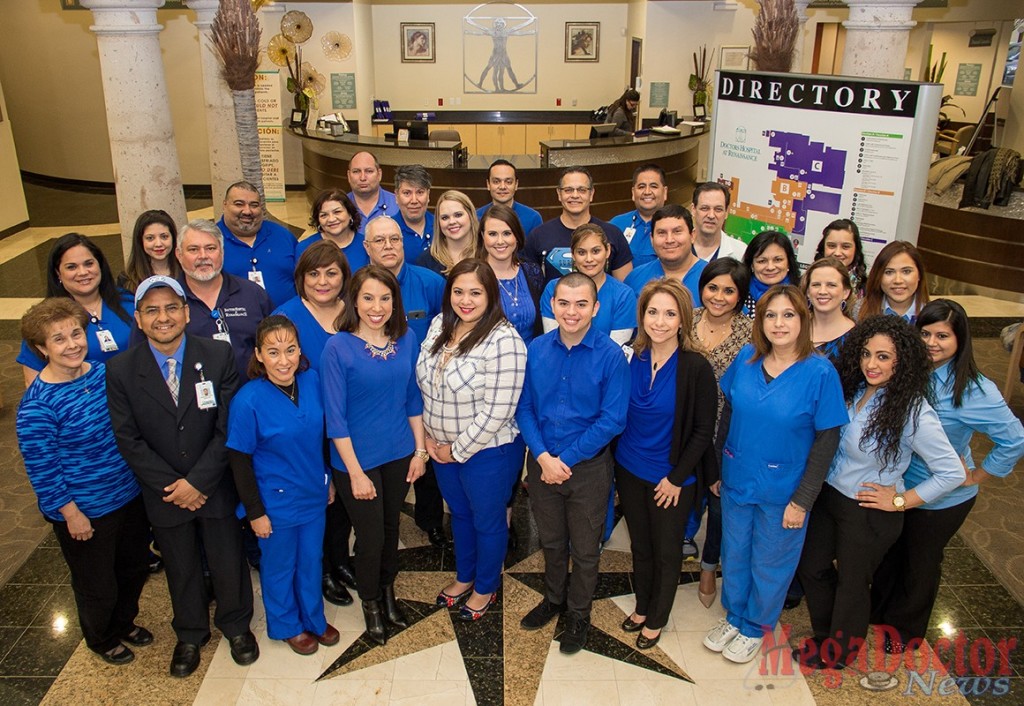DHR Employees spur education and action by participating in national awareness movement

Mega Doctor News –
Edinburg, TX—In the United States, one in twenty people will be diagnosed with colon cancer. It is the second leading cause of death from cancer yet it is one of the most preventable cancers. To increase awareness and highlight the importance of early screening and detection, Doctors Hospital at Renaissance employees participated in the Colon Cancer Alliance’s National Dress in Blue Day, commemorating March as Colon Cancer Awareness Month.
“We wanted to make a difference in the lives of our employees, their families and their friends. Our Dress in Blue Day event encouraged employees to talk to loved ones about colon cancer and the importance of being screened. By creating more awareness around this disease, we will save lives,” said Marissa Castañeda, DHR Senior Executive Vice President. “It’s important that we do our part to help create a future free of colon cancer.”
According to the Colon Cancer Alliance, on average, a person’s risk of developing colon cancer is about 5%. However, this percentage widely varies according to individual risk factors. Age is the biggest risk factor – everyone over the age of 50 should get screened. Other risk factors include those with a family history of colon cancer and those who have an inflammatory disease like Crohn’s disease.
Last year, more than 50,000 people died from colon cancer in the United States. It is estimated that 93,000 people will be diagnosed with colon cancer this year. Yet, nine out of ten colon cancers could be prevented or successfully treated with regular colon cancer screenings. According to the American Cancer Society, the colon cancer death rate in this country could be cut in half if Americans followed recommended screening guidelines.
Colon cancer arises from pre-cancerous growths or polyps that grow in the colon. When detected early, polyps can be removed, halting their progression to colon cancer. While early detection of any cancer is important, prevention is powerful!
The most common form of colon cancer screening is a colonoscopy, where a thin, flexible tube is used to find polyps, tumors, and bleeding in the rectum and colon. Samples of any suspicious spots are taken out and tested for precancerous growth.
In addition to early screening and detection, eating low-fat diet rich in fruits, vegetables, and whole grains, exercising, and not smoking are additional ways to reduce your risk of developing colon cancer.
For more information about Colon Cancer Awareness Month or to schedule your colonoscopy, call Renaissance Gastroenterology at (956) 362-ENDO (3636).










